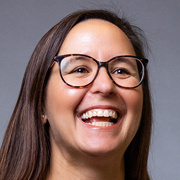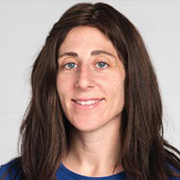In anticipation of the Midyear Clinical Meeting, ASHP is hosting a series of podcasts focused on highlighting key sessions, hot topics and “can’t miss moments.” Hosted by Cynthia Von Heeringen, Education Director on the National Meetings Team at ASHP. On today’s episode we are sitting down with Drs. Jennifer Clements and Diana Isaacs and learning more about their session, Another Great Debate — Semaglutide versus Tirzepatide for Type 2 Diabetes and Obesity. If you haven’t already, register for the Midyear clinical meeting today at midyear.ashp.org. The information presented during the podcast reflects solely the opinions of the presenter. The information and materials are not, and are not intended as, a comprehensive source of drug information on this topic. The contents of the podcast have not been reviewed by ASHP, and should neither be interpreted as the official policies of ASHP, nor an endorsement of any product(s), nor should they be considered as a substitute for the professional judgment of the pharmacist or physician.
SPEAKERS
 Jennifer N. Clements, PharmD (she/her/hers) is a Clinical Professor and Director of Pharmacy Education with the University of South Carolina College of Pharmacy at the School of Medicine – Greenville Campus. Dr. Clements earned her Pharm.D. from Campbell University in 2006 and completed a primary care pharmacy practice residency in 2007 at the Ralph H. Johnson VA Medical Center in Charleston, South Carolina. She is a board-certified pharmacotherapy specialist, board-certified ambulatory care pharmacist, certified diabetes care and education specialist, and board certified in advanced diabetes management. Dr. Clements She has authored numerous publications and presentations related to diabetes and obesity pharmacotherapy.
Jennifer N. Clements, PharmD (she/her/hers) is a Clinical Professor and Director of Pharmacy Education with the University of South Carolina College of Pharmacy at the School of Medicine – Greenville Campus. Dr. Clements earned her Pharm.D. from Campbell University in 2006 and completed a primary care pharmacy practice residency in 2007 at the Ralph H. Johnson VA Medical Center in Charleston, South Carolina. She is a board-certified pharmacotherapy specialist, board-certified ambulatory care pharmacist, certified diabetes care and education specialist, and board certified in advanced diabetes management. Dr. Clements She has authored numerous publications and presentations related to diabetes and obesity pharmacotherapy.
 Diana Isaacs, PharmD, BCPS, BC-ADM, BCACP, CDCES, FADCES, FCCP is an endocrine clinical pharmacy specialist and the director of education and training in Diabetes Technology at the Cleveland Clinic. Dr. Isaacs earned her PharmD from Southern Illinois University Edwardsville (SIUE) and completed a pharmacy practice residency at the Philadelphia VA. Dr. Isaacs serves in leadership roles for several pharmacy and diabetes organizations. She served on the ADA Professional Practice Committee for 2020-2023, the committee that updates the ADA Standards of Care. She is a national board member of the Association of Diabetes Care and Education Specialists (ADCES). Dr. Isaacs was awarded the Ohio Pharmacists Association Under 40 Award in 2019 and was the 2020 ADCES Diabetes Care and Education Specialist of the Year. In 2022, she was inducted into the SIUE Hall of Fame for her far-reaching contributions in patient care.
Diana Isaacs, PharmD, BCPS, BC-ADM, BCACP, CDCES, FADCES, FCCP is an endocrine clinical pharmacy specialist and the director of education and training in Diabetes Technology at the Cleveland Clinic. Dr. Isaacs earned her PharmD from Southern Illinois University Edwardsville (SIUE) and completed a pharmacy practice residency at the Philadelphia VA. Dr. Isaacs serves in leadership roles for several pharmacy and diabetes organizations. She served on the ADA Professional Practice Committee for 2020-2023, the committee that updates the ADA Standards of Care. She is a national board member of the Association of Diabetes Care and Education Specialists (ADCES). Dr. Isaacs was awarded the Ohio Pharmacists Association Under 40 Award in 2019 and was the 2020 ADCES Diabetes Care and Education Specialist of the Year. In 2022, she was inducted into the SIUE Hall of Fame for her far-reaching contributions in patient care.
 Cynthia von Heeringen is a scientific project director, educational programs at ASHP and is responsible for planning, coordinating, and executing medical education, continuing professional development programs, and other clinical resources for pharmacists and other healthcare professionals. This includes developing educational content for ASHP’s national meetings, industry supported activities, and certifications product line. With extensive experience in acute care clinical practice and operational supervision, she is passionate about medication safety and process optimization. She is a graduate of the University of Rhode Island College of Pharmacy.
Cynthia von Heeringen is a scientific project director, educational programs at ASHP and is responsible for planning, coordinating, and executing medical education, continuing professional development programs, and other clinical resources for pharmacists and other healthcare professionals. This includes developing educational content for ASHP’s national meetings, industry supported activities, and certifications product line. With extensive experience in acute care clinical practice and operational supervision, she is passionate about medication safety and process optimization. She is a graduate of the University of Rhode Island College of Pharmacy.






